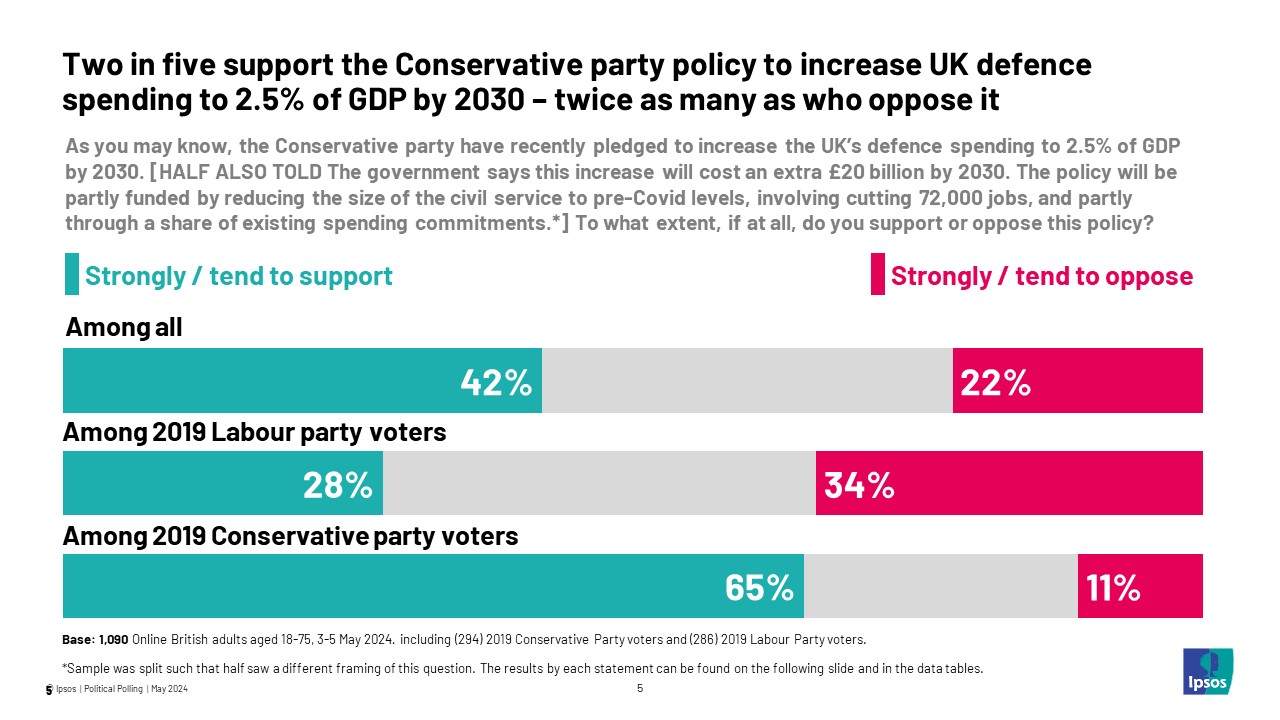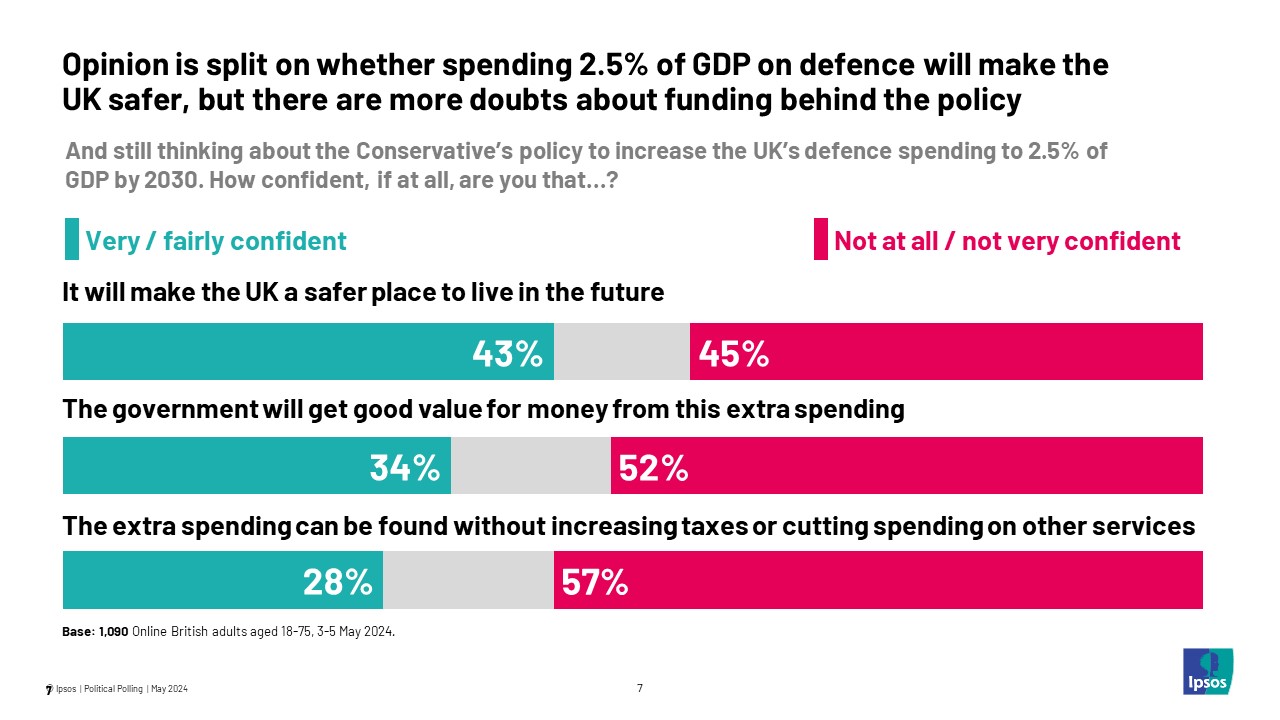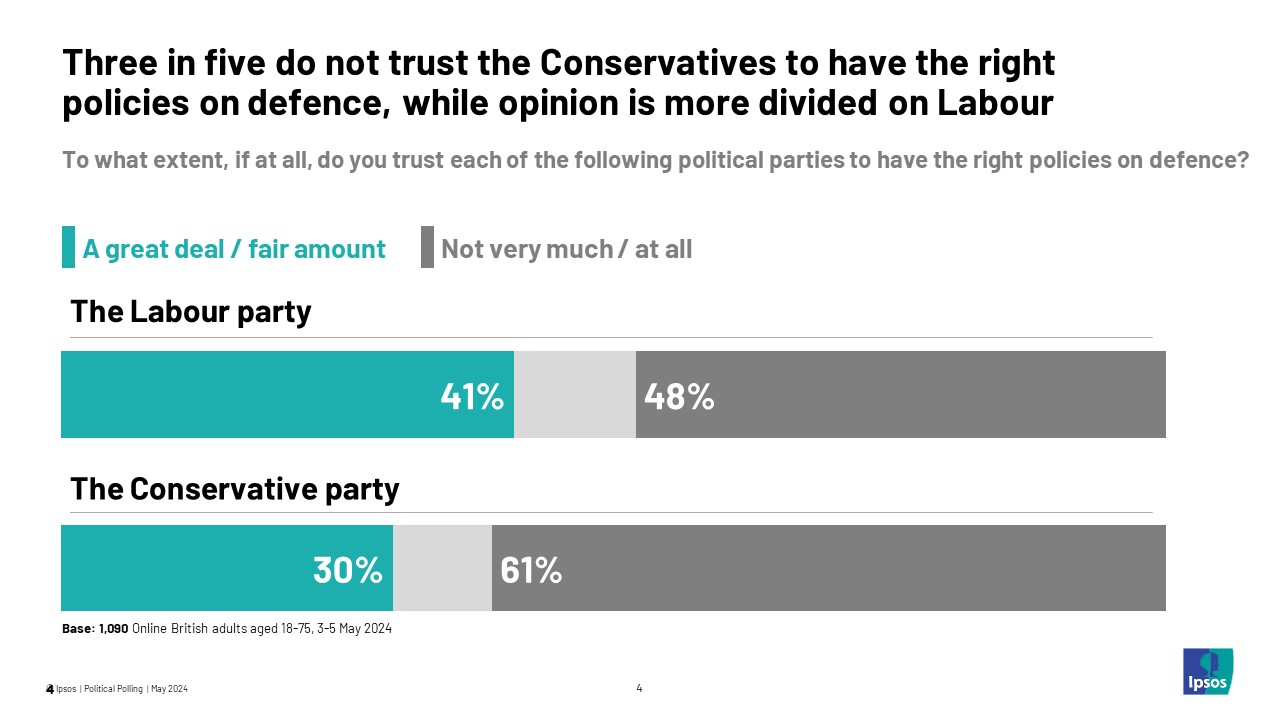Four in ten support plans to increase defence spending, but majority do not trust Conservatives to have right policies on defence
- Support highest among Conservative 2019 voters
- But doubts over how it will be funded
- NHS remains public’s top priority for more spending
New polling from Ipsos, conducted after Prime Minister Rishi Sunak pledged to increase defence spending to 2.5% of GDP by 2030, has found that twice as many Britons support the policy as oppose it, by 42% to 22%. However, the poll also reveals a lack of trust that the Conservative party has the right policies on the issue.
Support for increasing defence spending
- The poll found that 42% of people overall support increasing defence spending to 2.5% of GDP, while 22% oppose it.
- 65% of those who voted Conservative at the last election support the increase. Among those who voted Labour in 2019 views are divided, with 28% in support and 34% opposed.

- Half of the overall sample was given additional context about the proposed funding of the policy. This stated “The government says this increase will cost an extra £20 billion by 2030. The policy will be partly funded by reducing the size of the civil service to pre-Covid levels, involving cutting 72,000 jobs, and partly through a share of existing spending commitments.” Overall, the balance of support was similar for both versions of the questions, though it was slightly lower among those given the additional information (39% support and 24% oppose for those who received the additional context, versus 45% support and 20% oppose for those who did not).
- Opinion is relatively evenly divided on whether the increase in defence spending will make the UK safer, with 43% believing that it will, and 45% believing that it will not.
- However, half (52%) of Britons are not confident that the government will get good value for money from the increased spending on defence.
- There are also doubts about how the policy will be funded, with 57% not confident that the extra spending can be found without increasing taxes or making cuts to spending on other services.

Trust in political parties on defence
- Despite the support for increasing defence spending, a clear majority (61%) of Britons do not trust the Conservatives very much to have the right policies on defence (compared with 30% who do trust them).
- Opinion is more divided on Labour. 41% trust the party to have the right policies on defence, while 48% do not.

Support for spending by policy area
- Elsewhere in the poll, people were asked to choose which two or three policy areas they most believe should receive increases in public spending, where cuts could be made, and which gave most value for money.
- The NHS/healthcare is the public’s top priority for more spending, with two-thirds (66%) of Britons believing it should be first for more money in the future.
- Border and immigration control came second at 21%, closely followed by housing at 20%. Defence spending came equal fifth, with 16% believing that it should be a priority for more spending.
- Conversely, 42% of Britons believe that foreign aid should be the priority to receive less public spending. This was followed by benefit payments (20%) and universities (19%).
- The NHS also comes top of the public’s list as the policy area that gives both the best (21%) and the worst (27%) value for money from public spending.
Commenting on the findings, Gideon Skinner, Head of Political Research at Ipsos, said:
Although the public doesn't necessarily trust the Conservative Party's defence policies, they are open to the party's proposed increases in defence spending - especially among their 2019 voter base. However, even at a time of increasing global tensions, we are seeing that most Britons still believe that domestic issues like the NHS, immigration control, and housing are higher priorities for increases in public spending.
Technical note
Ipsos interviewed a representative sample of 1,090 adults aged 18-75 across Great Britain. Polling was conducted online on between 3-5 May 2024. Data are weighted to match the profile of the population. All polls are subject to a wide range of potential sources of error.






